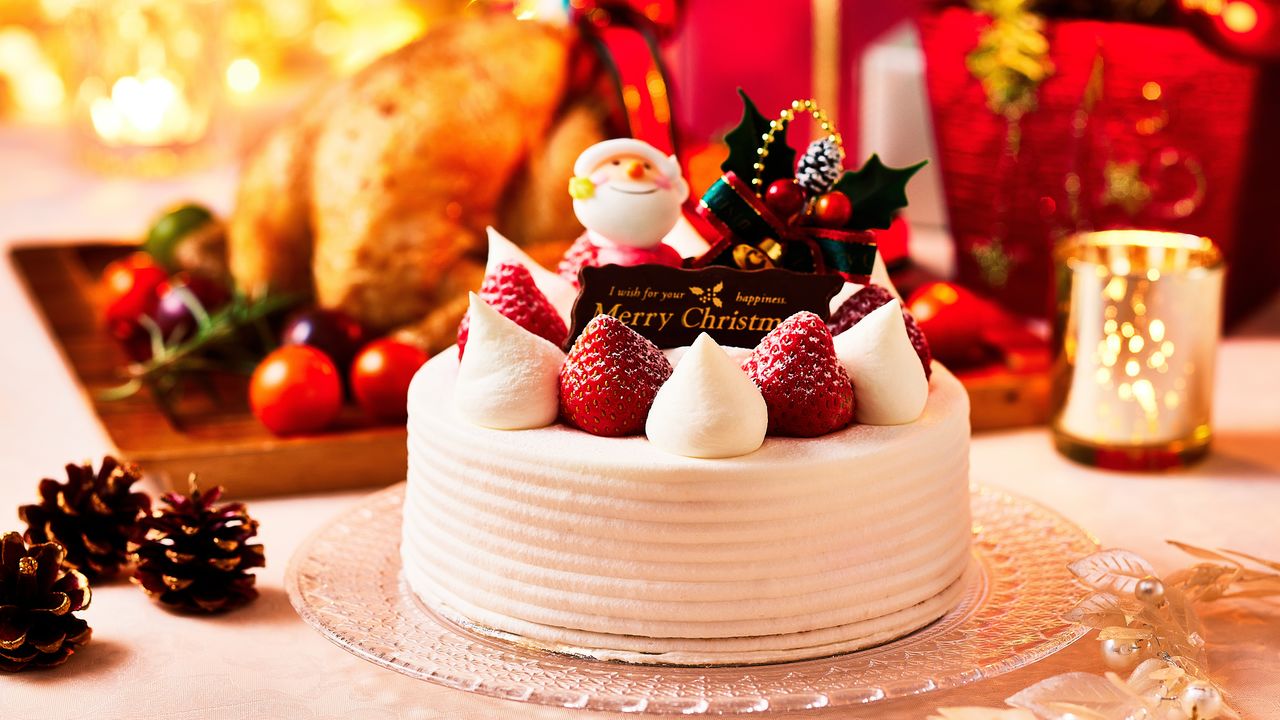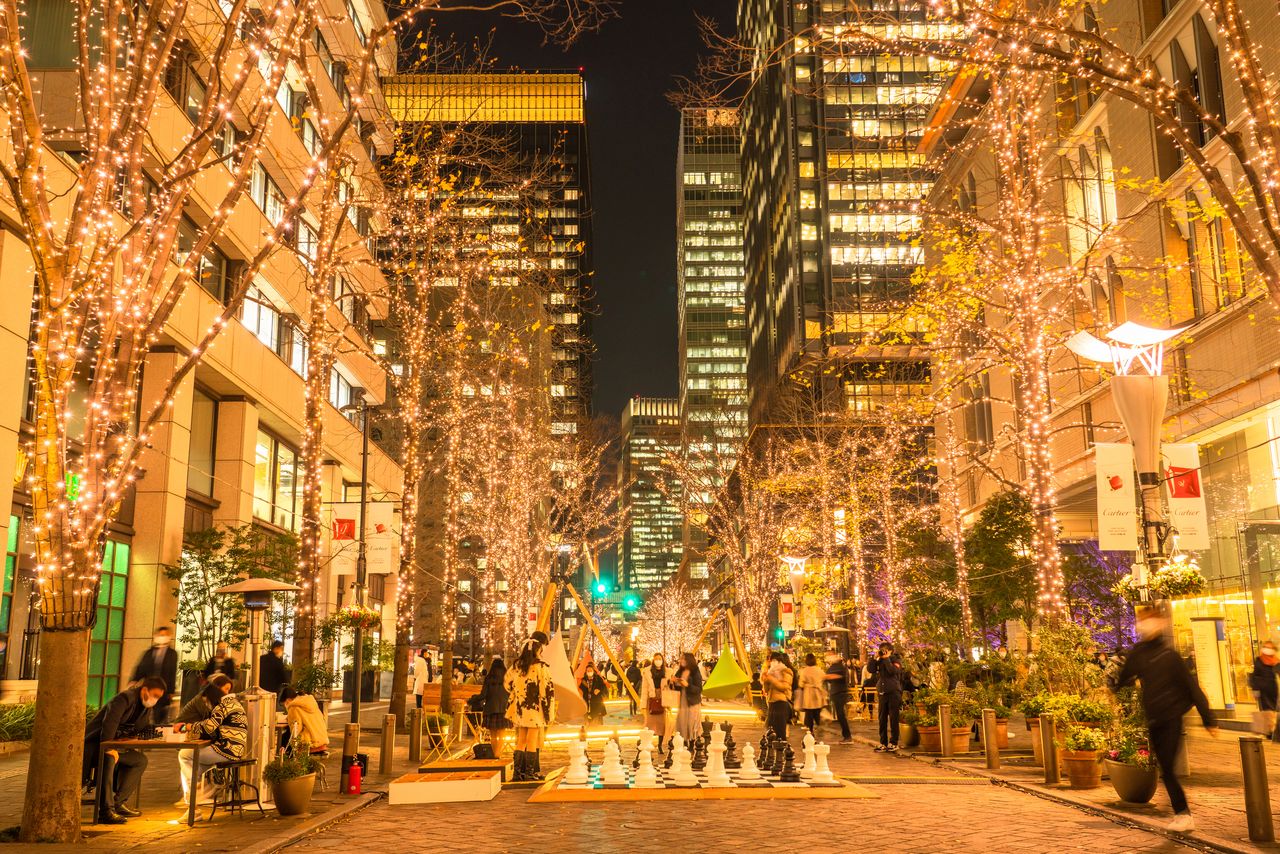
Christmas in Japan
Society Culture- English
- 日本語
- 简体字
- 繁體字
- Français
- Español
- العربية
- Русский
A Very Japanese Christmas
Although Christmas creates a lot of excitement in Japan, only around 1% of the population identifies as Christian. Most people enjoy it as a largely secular celebration.
In many countries, Christmas is a time to spend with the family, but in Japan the holiday is associated with commercial events. Beyond the rush for gift shopping, restaurants prepare seasonal menus, and top hotels plan expensive dinner shows featuring performances by famous artists.
Christmas Eve is considered to be romantic for couples—especially those who are single—marked by special dates and the exchange of gifts. The love song “Christmas Eve” by Yamashita Tatsurō has regularly appeared on December music charts for four decades and is now inextricably linked with the season.
The Origins of Christmas Illuminations
The high-end food store Meidi-Ya’s holiday decorations are said to have led to the spread of Christmas as a major event in Japan.
Inspired by experiences during his studies in Britain, the company’s founder launched Christmas displays as part of promotional activities from the time of its establishment in 1885. The decorations at the Yokohama store in 1886 are considered to have included Japan’s very first Christmas tree. Later, the Christmas displays at its Ginza store, opened in 1900, prompted other department stores in the district to follow its lead, helping spark the nationwide popularity of Christmas.

A Tokyo street adorned with Christmas lights. (© Pixta)
Chicken and Cake
While turkey and ham are common Christmas dishes in the English-speaking world, Japanese families usually celebrate with chicken.
This is believed to stem from a campaign launched by Kentucky Fried Chicken in 1974. One story claims that foreign residents in Japan, unable to find turkey, turned to fried chicken instead. Another tells of a KFC manager who dressed up as Santa Claus and delighted customers.
Another essential food item is the Christmas cake. This tradition began when the confectionery company Fujiya sold Japan’s first Christmas cake in 1910. Since the 1960s, the most popular version has been a light sponge cake covered with cream icing and topped with strawberries. Decorations often include sugar or marzipan figures of Santa Claus, Christmas trees, and other festive motifs.
Today, countless food companies and shops offer seasonal products, adding their own flair to Japan’s unique style of Christmas celebration.
(Banner photo: A Christmas cake and roast chicken. © Adobestock.)
